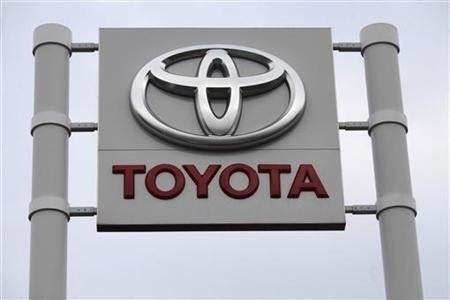Toyota, BMW to Jointly Develop Environment-Friendly Car Technologies

Toyota Motor Corp. (7203.T) and BMW AG (BMWG.DE) said on Thursday that they would work together on a broad range of advanced environment-friendly car technologies, including the joint development of lithium-ion batteries for electric vehicles.
BMW will also supply 1.6 and 2.0 litre diesel engines to Toyota beginning in 2014, for cars to be sold in Europe, while the two agreed to identify and discuss other possible joint projects. Toyota said the agreement would allow it to expand its European product lineup.
Fundamentally we are both engineering companies, so in many aspects we have found we speak the same language, and it is interesting to see what can be achieved when Japanese engineering meets European engineering and when the cooperation really works, Toyota Motor Europe President and Chief Executive Officer, Didier LeRoy, said at a news conference. However, company executives said there were no discussions on the tie-up expanding to include equity holdings.
The hand-shake between the two industry stalwarts comes as automakers face ballooning research and development costs to meet tougher emissions and fuel-economy standards around the world. They must also meet consumers' varying preferences for vehicle powertrains across different regions.
Rivals Nissan Motor Co. (7201.T) and Daimler AG (DAIGn.DE) have been especially aggressive in pursuing partnerships to save costs.
The tie-up in diesel technology could represent a reversal in Toyota's strategy after it scrapped plans two years ago to develop 1.6-litre diesel engines with Japanese truck maker Isuzu Motors Ltd (7202.T), in which it owns a 5.9 percent stake.
Two and a half years ago, Toyota's President, Akio Toyoda said, at his first news conference, the company would shift its focus in Europe to hybrids and away from diesel so as not to get lost in the crowd. However, Toyota has lost market share in Europe, partly due to a dearth of diesel cars, which make up more than half of new vehicle sales in the region. Diesel engines use less fuel and emit less carbon dioxide than gasoline engines.
While virtually all car makers acknowledge that hybrid technology will be necessary when regulations become tighter, it has never accounted for more than 2 percent of global vehicle sales and Toyota has not been able to leverage its strength in the technology to gain traction in the European market.
Under Toyoda, Japan's top automaker has forged numerous partnerships, including those with Aston Martin, Tesla Motors Inc. (TSLA.O), Microsoft Corp. (MSFT.O), Salesforce.com and Ford Motor Co. (F.N).
BMW's Sales and Marketing Chief, Ian Robertson, said at the Tokyo Motor Show on Wednesday that he expected to see more tie-ups among car makers and that the German premium car maker remained open to cooperation as long as it did not dilute its brand. It has a deal to work on common components with Daimler and on hybrids with PSA Peugeot Citroen.
Toyota shares rose 2.3 percent on Thursday in Tokyo, in line with gains in the benchmark Nikkei average.
© Copyright Thomson Reuters 2024. All rights reserved.





















